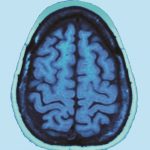Since 2008, MS Research Australia has coordinated a national collaborative genetics platform known as ANZgene to facilitate DNA sample collection and coordinate research efforts into the ways that genes influence susceptibility to MS and progression of the disease. ANZgene investigators work on a range of genetics projects and have published a number of new results since the start of 2016 looking more deeply at the role of genes in MS.
In three new separate scientific papers, ANZgene researchers have identified new genes which mediate the role of Epstein-Barr Virus (EBV) in MS (a virus which is a known risk factor for developing MS), looked at the influence of genes on an individual’s response to treatment with interferon-beta medication and examined the way that one gene, called MERTK, behaves in cells to alter the risk of MS.
Previous infection with EBV, the virus which causes glandular fever, is a known environmental risk factor for the development of MS. While the infection rate in the general population is very high, people with MS invariably show evidence of a previous EBV infection. EBV infection results in an immune response which can be measured by the levels of particular EBV immune proteins in the blood.
A team led by Professor Bruce Taylor at the Menzies Institute of Medical Research Tasmania, looked at whether genes are involved in the levels of EBV immune proteins produced in response to an EBV infection. Published in the MS Journal, the study showed that genes which increase the risk of developing MS are also seen in people with higher levels of EBV immune protein in their blood. This included the main MS risk gene known as the Human Leukocyte Antigen or HLA region as well as others. This work suggests that the strength of the immune response in people exposed to EBV is genetically determined and this in turn increases a person’s risk of MS.
Another ANZgene study, which analysed the role of genetics in a person’s response to treatment with interferon-beta therapy was published in March in the Pharmacogenomics Journal. Up to half of people with MS treated with interferon-beta do not respond to the therapy and determining whether a person is responding to treatment can require medical follow-up over two years, which is not ideal. This team of researchers, led by Dr Catherine King from the University of South Australia, wanted to determine whether treatment response could be predicted in advance from a person’s genetic make-up, saving time and allowing doctors to select a more suitable treatment from the outset. Using a group of 151 Australian MS patients, looking at all the genes in the genome, they found that eight separate genetic changes were linked to interferon-beta treatment response. These genetic changes were then confirmed in 479 people with MS from Australia, Italy and Spain. Another 2016 paper, from a separate team of researchers, found that HLA region genes also had an effect on interferon-beta treatment response. All of these findings will now need to be confirmed in the wider MS population taking interferon-beta before being used in a clinical setting to help guide treatment decisions.
ANZgene researchers were also involved in a study which looked in detail at the role a specific gene, MERTK, plays in immune cells to determine how it exerts an effect on the risk of developing MS. MERTK is an established risk gene for MS and regulates the activation of the immune system. This study, led by Dr Judith Field from the Florey Institute of Neuroscience and Mental Health in Victoria and published in PLoS Genetics, found that multiple independent changes to this gene influences MS risk. They also found that the genetic changes increased the activity of MERTK in some immune cells and could increase or decrease a person’s risk of developing MS depending on other genetic changes in the HLA region.
The researchers also showed that MERTK, as well as influencing MS risk, may affect the rate of conversion from relapsing-remitting MS to secondary progressive MS. This important finding makes MERTK a potential target for new therapies.
Dr Matthew Miles, CEO of MS Research Australia said ‘We are very proud of the impact of our research platforms, such as the ANZgene Genetics Consortium, on facilitating productive collaboration and contributing to the progress of MS research. I congratulate the ANZgene researchers on a flying start to 2016’.




